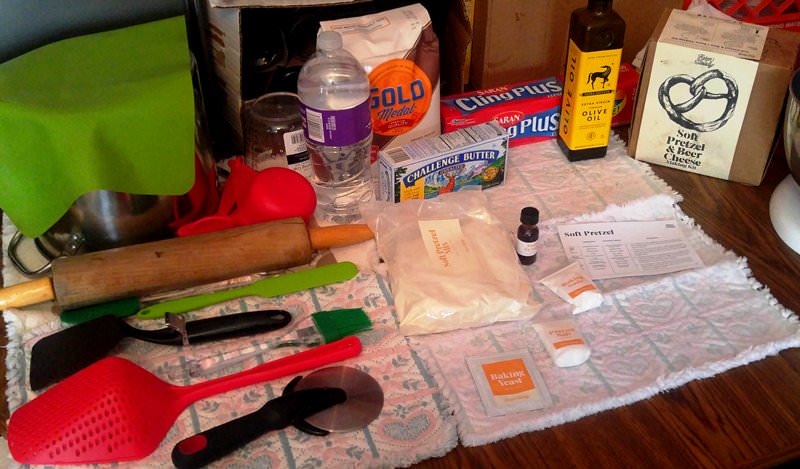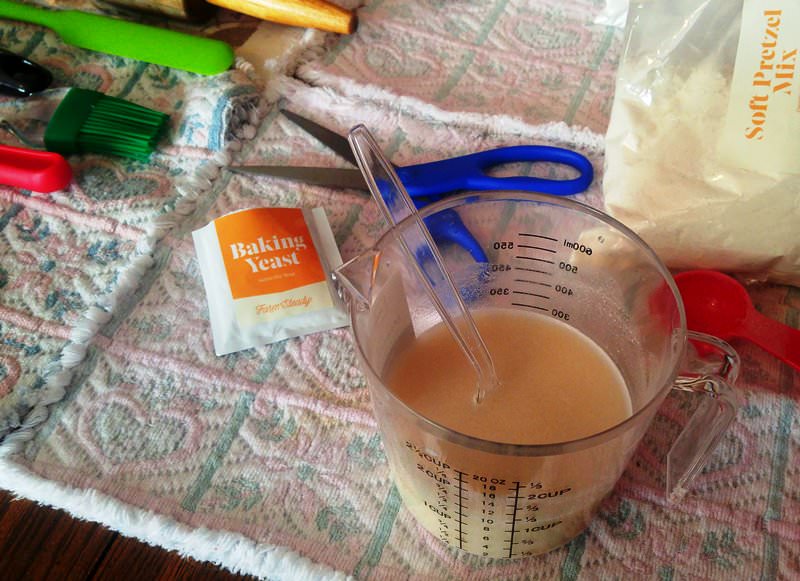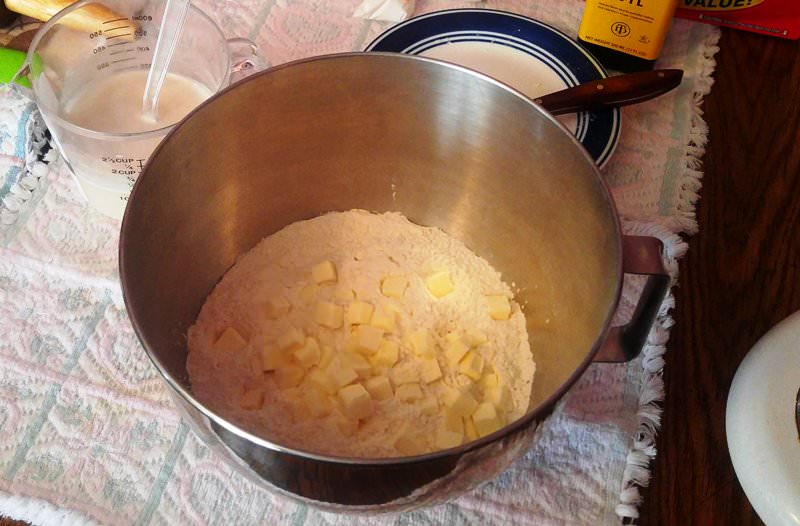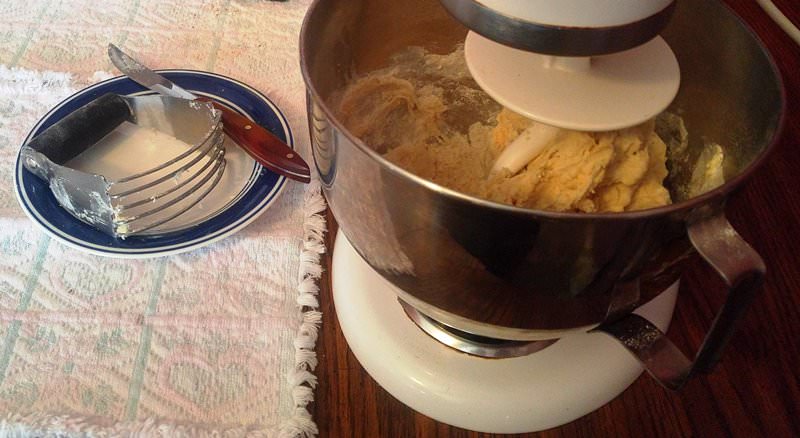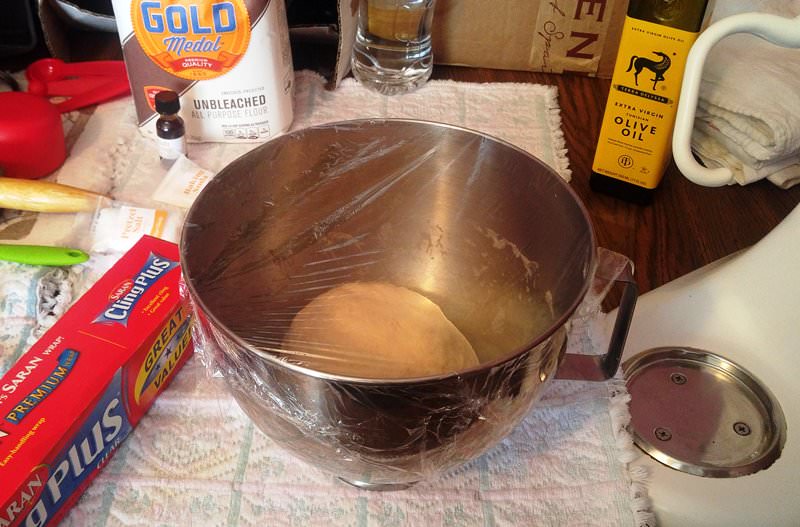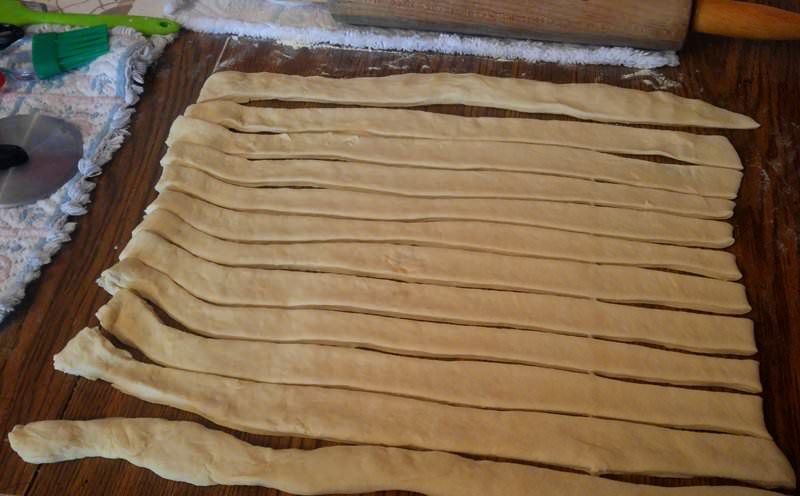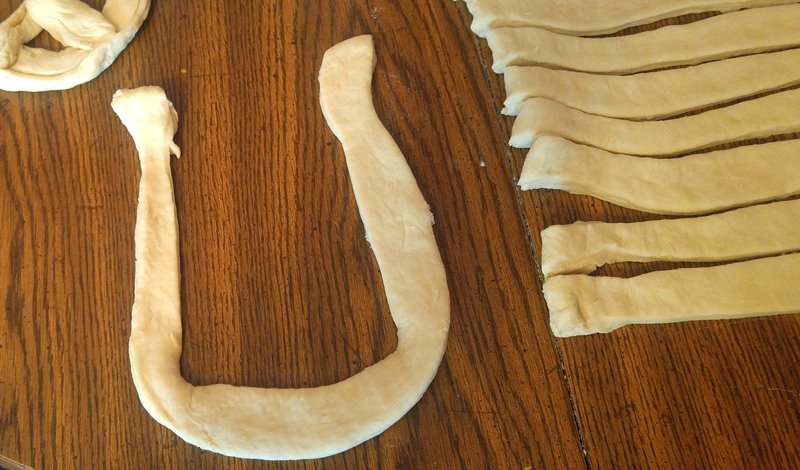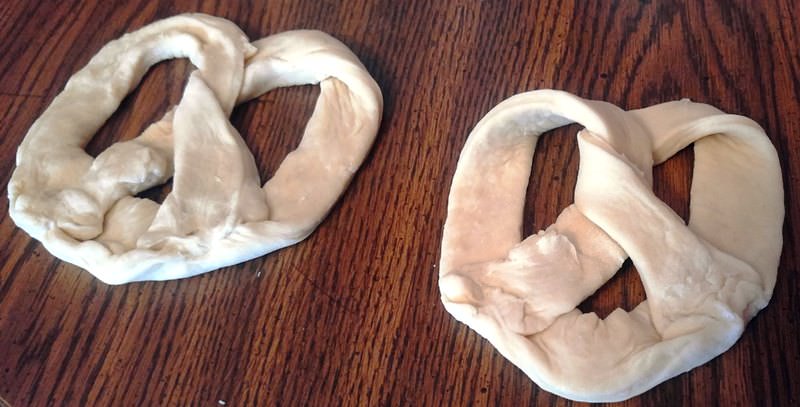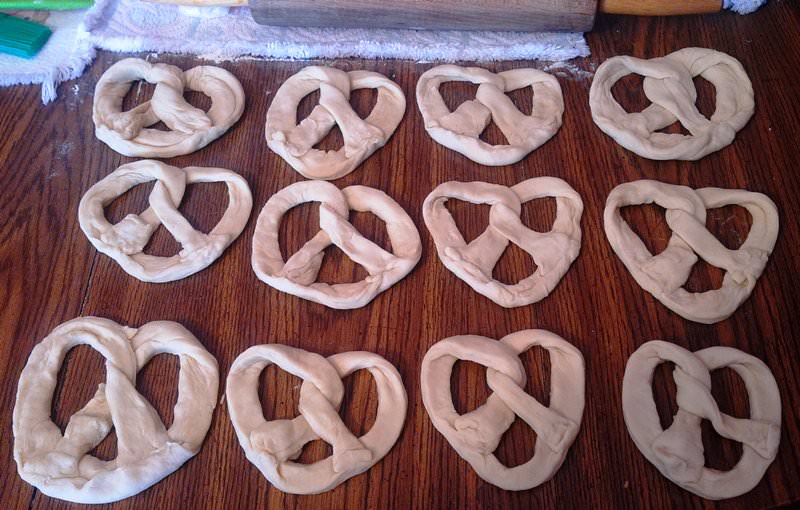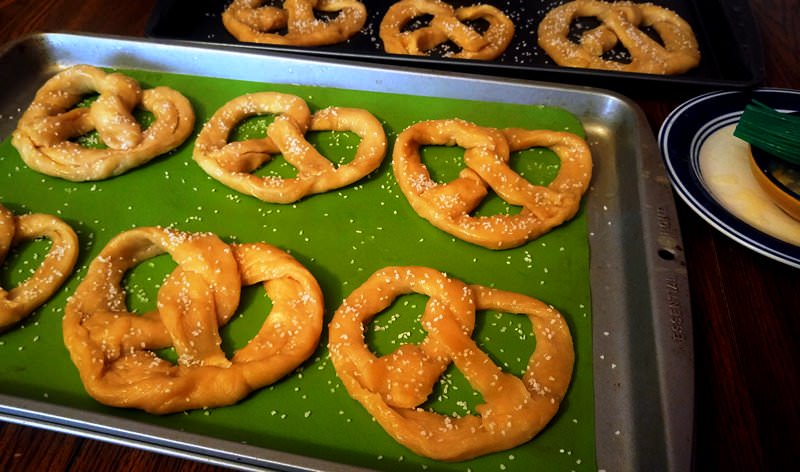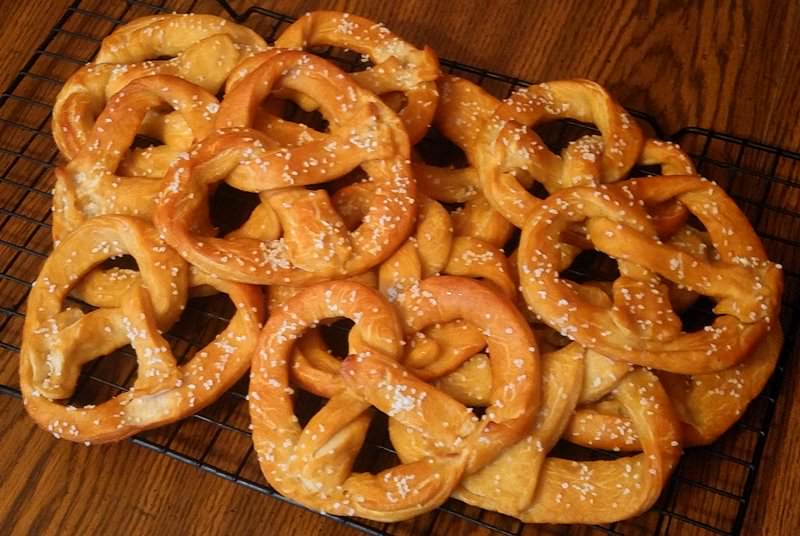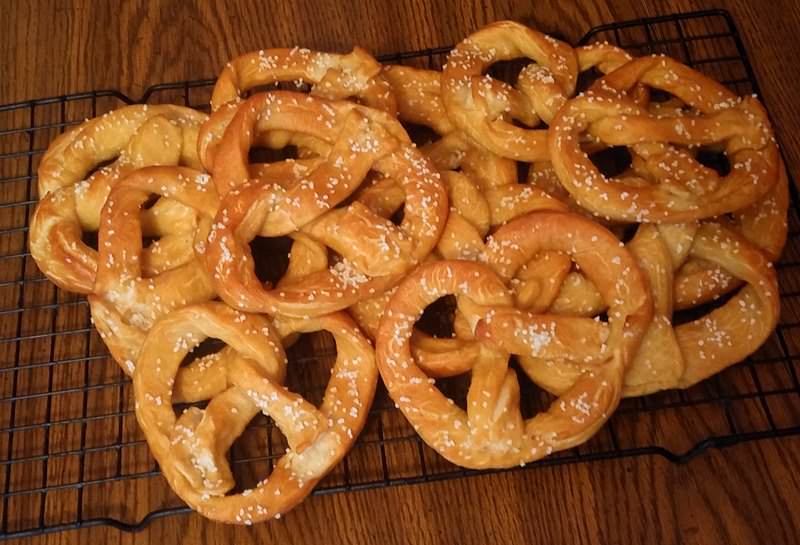TasunkaWitko
Well-Known Member
Soft Pretzel Kit from FarmSteady
For whatever reason, I have always loved pretzels in almost any form. Ever since I was a young child, they have been one of my favourite things, and as someone who is interested in food history, I found it impressive that such an old treat has managed to survive for such a long time and remain as beloved now as it has been for centuries. For these and other reasons, I have been wanting to make pretzels at home for years; but like so many things, it had never really happened. It would be easy to say that "life kept getting in the way," but the truth is that I simply never got around to it.
Then, not terribly long ago, FarmSteady introduced their Soft Pretzel and Beer Cheese Kit:
http://farmsteady.com/shop/soft-pretzel-beer-cheese-kit
I could have done made pretzels any time without this kit, of course; it would have been no trouble at all to find a recipe and make them, but as I said, it just never happened and - to be frank - the project seemed incredibly esoteric and intimidating. But in this case, the timing was fortuitous; FarmSteady launched soon after I learned to brew beer from its sister company, Brooklyn Brew Shop, where the motto is, "If you can make oatmeal, you can make beer" -
www.brooklynbrewshop.com
Such words of encouragement are a boon, at times, and the helpful enthusiasm was just as apparent with this new venture. When I saw this kit, I was immediately inspired; I made the decision then and there to finally move forward with a project that I have been wanting to do for such a long time, and on Super Bowl Sunday, 2018, I finally achieved this goal.
This pictorial follows my journey through the kit, but you, Dear Reader, can of course do exactly the same thing with a recipe for soft pretzels; luckily, we have a couple of good ones right here on this forum. First is this recipe, posted by Brook in his primer on baking bread:
http://foodsoftheworld.activeboards...n-baking-bread_topic3089_post20759.html#20759
This recipe and method are tried and true - many times over - by Brook himself, and I will also eventually give it a go.
The second recipe that we have here is close to my heart; it comes from a friend in Alsace, who also turned out to be a distant relative:
http://foodsoftheworld.activeboards.net/alsatian-pretzels-bretzel_topic4683.html
He lives not far from where my direct ancestors originated, and over the years we have corresponded about many things. He himself does not do much cooking, although he recently shared a story with me about making some Baeckeoffe with his grandson; however, he has mentioned many times that his wife and mother-in-law love to cook, and are good at it. I presume that this recipe is from them, as he describes it as a family recipe. This will most likely be the recipe that I will use the next time that I make pretzels.
In any case, the point remains: Pretzels are easy, and they are good - don't wait as long as I did to give them a try!
As I said above, pretzels have a long and interesting history; there seems to be a general consensus on the general story of this history, but different accounts will provide some unique and interesting details. Rather than try to rewrite the tale, I will provide the typical example:
As always, much of this can probably be taken with a grain of salt; however, they do say that all legends have an element of truth in them. Other sources provided much the same stories, with only a little variation or added information:
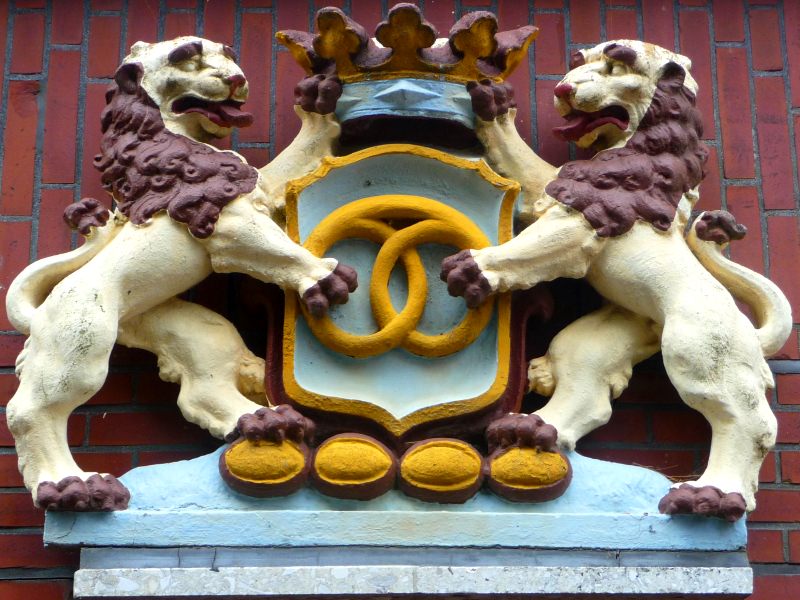
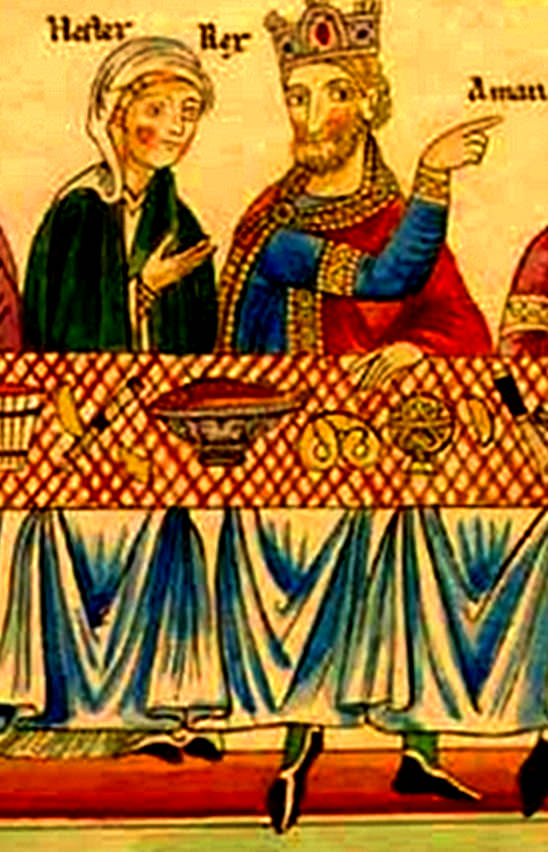
There is probably much more to be said regarding the origin, history and traditions of pretzels; but for our purposes, this brief introduction is surely adequate.
(Continued Below)
For whatever reason, I have always loved pretzels in almost any form. Ever since I was a young child, they have been one of my favourite things, and as someone who is interested in food history, I found it impressive that such an old treat has managed to survive for such a long time and remain as beloved now as it has been for centuries. For these and other reasons, I have been wanting to make pretzels at home for years; but like so many things, it had never really happened. It would be easy to say that "life kept getting in the way," but the truth is that I simply never got around to it.
Then, not terribly long ago, FarmSteady introduced their Soft Pretzel and Beer Cheese Kit:
http://farmsteady.com/shop/soft-pretzel-beer-cheese-kit
I could have done made pretzels any time without this kit, of course; it would have been no trouble at all to find a recipe and make them, but as I said, it just never happened and - to be frank - the project seemed incredibly esoteric and intimidating. But in this case, the timing was fortuitous; FarmSteady launched soon after I learned to brew beer from its sister company, Brooklyn Brew Shop, where the motto is, "If you can make oatmeal, you can make beer" -
www.brooklynbrewshop.com
Such words of encouragement are a boon, at times, and the helpful enthusiasm was just as apparent with this new venture. When I saw this kit, I was immediately inspired; I made the decision then and there to finally move forward with a project that I have been wanting to do for such a long time, and on Super Bowl Sunday, 2018, I finally achieved this goal.
This pictorial follows my journey through the kit, but you, Dear Reader, can of course do exactly the same thing with a recipe for soft pretzels; luckily, we have a couple of good ones right here on this forum. First is this recipe, posted by Brook in his primer on baking bread:
http://foodsoftheworld.activeboards...n-baking-bread_topic3089_post20759.html#20759
This recipe and method are tried and true - many times over - by Brook himself, and I will also eventually give it a go.
The second recipe that we have here is close to my heart; it comes from a friend in Alsace, who also turned out to be a distant relative:
http://foodsoftheworld.activeboards.net/alsatian-pretzels-bretzel_topic4683.html
He lives not far from where my direct ancestors originated, and over the years we have corresponded about many things. He himself does not do much cooking, although he recently shared a story with me about making some Baeckeoffe with his grandson; however, he has mentioned many times that his wife and mother-in-law love to cook, and are good at it. I presume that this recipe is from them, as he describes it as a family recipe. This will most likely be the recipe that I will use the next time that I make pretzels.
In any case, the point remains: Pretzels are easy, and they are good - don't wait as long as I did to give them a try!
As I said above, pretzels have a long and interesting history; there seems to be a general consensus on the general story of this history, but different accounts will provide some unique and interesting details. Rather than try to rewrite the tale, I will provide the typical example:
Though the exact origins of the pretzel remain mysterious, legend has it that the story began around A.D. 610, when Italian monks presented their young students with treats of baked dough twisted in the shape of crossed arms. At the time, crossing one’s arms was the traditional posture for prayer. As the custom spread through medieval Europe, the pretzel’s three holes came to represent the Holy Trinity — Father, Son and Holy Spirit — and the twisty baked good became associated with good luck, long life and prosperity.
The first pretzels were baked as a soft, squishy bread, like the soft pretzels of today. Some say they were originally called “bracellae,” the Latin term for “little arms,” from which Germans later derived the word “bretzel.” According to others, the earliest pretzels were dubbed “pretiolas,” meaning “little rewards,” and handed out by the monks when their young pupils recited their prayers correctly. Whatever they may have been called, the popularity of these twisty treats spread across Europe during the Middle Ages. Seen as a symbol of good luck, prosperity and spiritual fulfillment, pretzels were also commonly distributed to the poor, as a way of providing them with both spiritual and literal sustenance.
The Catholic Church played a leading role in the early history of the pretzel. In the seventh century, the church dictated stricter rules governing fasting and abstinence during Lent than it does today. Pretzels, made of a simple mixture of water, flour and salt, were an ideal food to consume during Lent, when all types of meat, dairy and eggs were prohibited....
By the 17th century, the interlocking loops of the pretzel had come to symbolize undying love as well. Pretzel legend has it that in 1614 in Switzerland, royal couples used a pretzel in their wedding ceremonies (similar to how a wishbone might be used today) to seal the bond of matrimony, and that this custom may have been the origin of the phrase “tying the knot.” In Germany — the country and people most associated with the pretzel throughout history — 17th-century children wore pretzel necklaces on New Year’s to symbolize good luck and prosperity for the coming year.
When did pretzels make their way to America? One rumor has it that the doughy knots came over on the Mayflower, and were used by the Pilgrims for trade with the Native Americans they met in the New World. German immigrants certainly brought pretzels with them when they began settling in Pennsylvania around 1710. In 1861, Julius Sturgis founded the first commercial pretzel bakery in the town of Lititz in Lancaster County, Pennsylvania....
https://www.history.com/news/hungry-history/the-pretzel-a-twisted-history
As always, much of this can probably be taken with a grain of salt; however, they do say that all legends have an element of truth in them. Other sources provided much the same stories, with only a little variation or added information:
While the New York Times reported in 1988 that a fifth century illuminated manuscript in the Vatican featured what may be the first pretzel, most sources date the snack's invention a century later...in either Northern Italy or Southern France....
Some scholars believe that the word "pretzel" is not a corruption of the Latin word "pretiola," but rather comes from the Old German "brezitella" from the Latin for "arm" (bracchiatus)....
[The pretzel] started popping up in medieval art as a lucky symbol, most famously in Herrad of Landsberg's encyclopedia Hortus Deliciarum. A 12th-century German nun, Herrad depicted pretzels as an important part of any feast....
In the 16th century, it was heroic pretzel bakers who saved Vienna from ransacking by Ottomon Turks. The story goes that in 1529 soldiers from the Ottoman Empire began the Siege of Vienna by tunneling underneath the Austrian city under the cover of darkness. However, several monks in the monastery's basement, hard at work making the next day's pretzels, overheard the commotion. They quickly altered the city leadership and military. By doing this, the monks were able to thwart the attack and save lives. In thanks, the Austrian emperor gave the pretzel bakers their own coat of arms which included angry lions holding a pretzel. It's still used at European pretzel shops today....
http://www.foodandwine.com/lifestyle/religious-history-pretzels

The exact origins of pretzels are unknown, but most sources cite 7th century monks in Italy or Southern Germany who adapted the Greek ring bread, which is itself derived from communion bread.... By the 12th century, pretzels, or bretzels, were firmly established in the German baking tradition, to the extent that the pretzel was used for the first time as the symbol of the German Baking Guild. It remains the emblem of many baking guilds today....
The first visual record of the pretzel is a frame from the illustrated manuscript Hortus Deliciarum, a 12th century work from Alsace (then part of Germany). The picture is a a scene from the Megillah, the Hebrew text describing the story of the holiday of Purim. Queen Esther and her evil husband King Ahasuerus are shown with a pretzel on a banquet table....
Legend has it that a baker, neglectful while baking pretzels, left them in the oven a bit too long, until they were dried out and hard. He realized that these pretzels were still delicious and had the advantage of keeping for longer. From then on, hard pretzels were given as charity to the poor....
https://webcache.googleusercontent....story-of-pretzels/+&cd=18&hl=en&ct=clnk&gl=us

There is probably much more to be said regarding the origin, history and traditions of pretzels; but for our purposes, this brief introduction is surely adequate.
(Continued Below)


